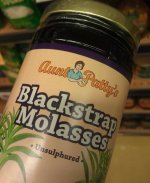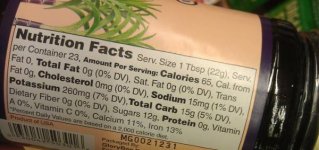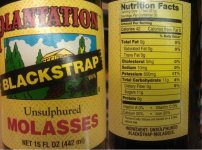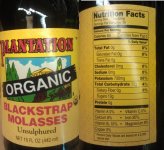thirst4knwledge
Member
t4k,
didn't notice that part...my bad...and no don't think you are trying to be an arse,your just pointing out correct info (which is ALWAYS a good thing as so much misinformation is abundant on the internet)...good looking out
Glad to hear it was received well. I know it can be difficult to discern tone in online discussions and I didn't want to come across as condescending. There is so much misinformation on the internet and I'm glad to be in a place where we're all looking for some truth.
FWIW, Robust is NOT blackstrap.
Blackstrap has sugars that are a bit different from the earlier cuts of molasses. They are more usable to the plant.
There is little to no scientific data (not to my limited knowledge) to support the idea that carbs in molasses or any other additive are transformed into sugary resin in buds. Molasses is more used for it's micronutrients, and to feed the micro-life in your soil. The "fattening up" of your buds (or whatever you might call it) that you see when you feed molasses is due to the feeding of probably much needed micronutrients, as well as an increase in the micro-life that feeds your soil. Blackstrap is also much lower in sodium (having none), which to my understanding is always a good thing in later growth stages.
That Plantation organic unsulphered kept dropping the ph of my water when I used it. I was glad I caught it right away, but probably would have had issues...never had that problem with any other brands, though.
Did you use the blackstrap grade of plantation organic unsulphured? Have you used blackstrap grades in the past? I don't really pay attention to ph due to feeding organically, my molasses is used to provide micronutrients feed micro-life. But the plantation organic blackstrap is pretty thick, I imagine it needs some ph adjustment otherwise. It also shouldn't be fed at nearly as high of rates as other non-blackstrap grade molasses'.
-t4k







